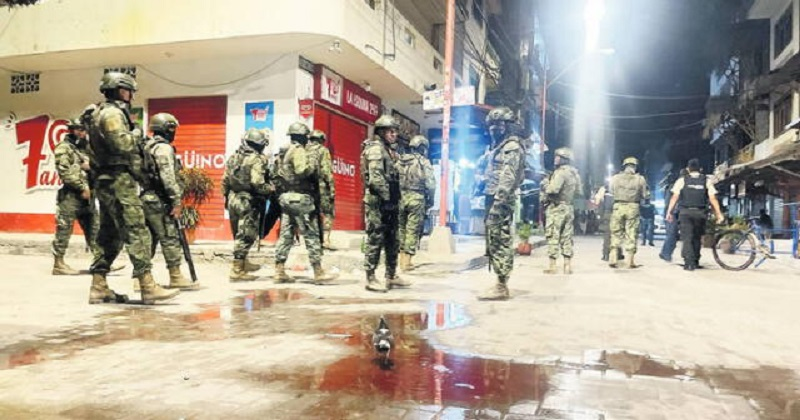
By María Josefina Arce
The UN once again expressed its concern in recent days about the violence that has taken over Ecuador. The international organization put its finger on the wound, mentioning the factors that have led to high insecurity and crime in the Andean nation, including the murder of eight politicians in the last year.
Poverty, lack of job opportunities and lack of access to education, otherwise of low quality, are causes of this panorama, pointed out by the UN Rapporteur on extreme poverty and human rights, Olivier De Schutter, after concluding a two-week visit to Ecuadorian territory.
The economic and social situation in Ecuador began to deteriorate with the arrival to the presidency in 2017 of Lenin Moreno, who implemented again in the country a neoliberal model, generator of inequalities.
Added to this was the return with its criticized adjustment policies of the IMF, International Monetary Fund, with which the nation had broken with under former President Rafael Correa.
As part of the agreement with the IMF, in order to reduce the fiscal deficit, successive state budgets have cut public spending, with the consequent deterioration of the living conditions of citizens.
The current president Guillermo Lasso has followed in the footsteps of his predecessor in the Carondelet Palace. And his strategy to confront violence has been to take more police and military to the streets, leaving aside the real causes.
The response to this problem must be comprehensive, it requires investments in favor of citizens, in important areas such as health, education and social protection.
Currently in Ecuador, the multidimensional poverty rate in urban areas is 23%, while in rural areas it reaches 70%.
Informal labor is also on the rise. About 53% of Ecuadorians are in this situation, they have no legal guarantees of salary, vacations, sick leave, among other protections.
Education opens multiple possibilities in life, but not everyone has access to it, and experts point out the low quality of the educational system in the Andean nation.
All these factors are exploited by criminal groups to recruit young people, who in many cases see it as an option to help their families.
The violence in Ecuador therefore requires a response that also takes into account offering alternatives, providing access to basic services that make a better future possible for all Ecuadorians.

